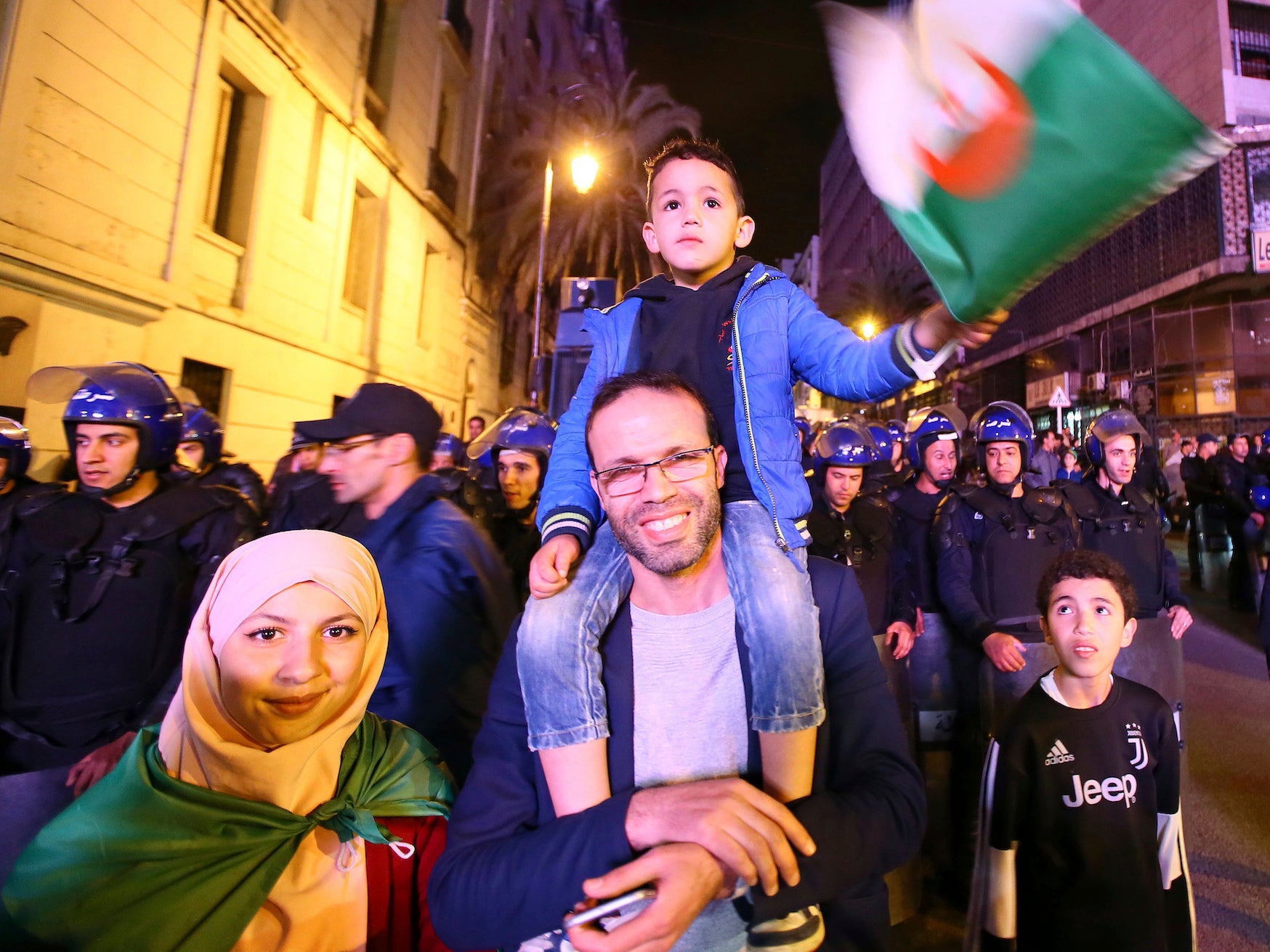Abdelaziz Bouteflika: Protesters and opposition demand more reforms after Algerian president resigns
Call for nationwide protests on Friday, as opposition presses against military-backed transition scheme
Your support helps us to tell the story
From reproductive rights to climate change to Big Tech, The Independent is on the ground when the story is developing. Whether it's investigating the financials of Elon Musk's pro-Trump PAC or producing our latest documentary, 'The A Word', which shines a light on the American women fighting for reproductive rights, we know how important it is to parse out the facts from the messaging.
At such a critical moment in US history, we need reporters on the ground. Your donation allows us to keep sending journalists to speak to both sides of the story.
The Independent is trusted by Americans across the entire political spectrum. And unlike many other quality news outlets, we choose not to lock Americans out of our reporting and analysis with paywalls. We believe quality journalism should be available to everyone, paid for by those who can afford it.
Your support makes all the difference.Algerians who flooded the streets in celebration at news of long-time president Abdelaziz Bouteflika’s resignation, pressed for more dramatic changes to a military dominated regime that has overseen the country for nearly 67 years.
After weeks of mass rallies across the country against his continuing rule, Mr Bouteflika stepped down on Tuesday after 20 years in office.
“I speak to you in farewell, and it is not easy to express my true, honest feelings towards you,” he said in a letter that was read aloud by newscasters. He has not spoken publicly since suffering a stroke in 2013.
“I am confident you will continue your new march of reform in a manner which would bring to our country greater welfare and security,” he said.
His departure, ultimately demanded by the country’s army chief of staff, Lieutenant General Ahmed Gaid Salah, prompted celebrations but also questions about who will steer the country during a transition period.
Opposition leaders and civil society groups, including key labour unions, kept up the pressure, signalling that Mr Bouteflika’s departure would not satisfy a swelling, leaderless protest movement that plans to take to the streets en masse again after noon prayers on Friday.

“The resignation of Bouteflika from the presidential post is only a first victory achieved by the historic and unwavering mobilisation of the Algerian people,” a collection of civil society groups said in a statement. “We take note, but it is not enough as it offers no guarantees. Other victories are necessary. We have only travelled part of our path, but the journey ahead will be long.”
Unlike other Arab autocracies, Algeria has had no idolised strongman as its ruler. Mr Bouteflika often appeared to serve as a front for various largely hidden networks of power controlling the country’s economy and security forces.
In recent years, Algerians have begun to forcefully demand more transparency and accountability, especially several large corruption scandals.
“The next goal is getting rid of the entire cabinet,” one analyst said of the protesters aims. “There are emerging figures that could take up the reins of government.”
‘The resignation of Bouteflika from the presidential post is only a first victory”
After the reversal of the 2011 Egyptian parliamentary elections by military leaders, Algerians have also grown wary of their own army’s interventions in politics.
“If the end result of the army chief’s manoeuvring is the continuation of the deviousness and maliciousness with the aim of hegemony and control over power and the reproduction of corruption, there will continue to be peaceful political resistance regardless of the price,” Abderazzak Makri, leader of the Islamist Movement of Society for Peace opposition party, was quoted as saying
Opposition leader Ali Benflis, a former regime insider who broke with Mr Bouteflika and leads his own political party, called for the exclusion of several key figures close to the president from the transition process.
He named Abdelkader Bensalah, speaker of the parliament who is set to become transitional president, Tayeb Belaiz, head of the Constitutional Council that is tasked with overseeing the handover of power, and Noureddine Bedoui, the prime minister named by Mr Bouteflika during his final weeks in power, as officials who should be barred from shaping the political process.
“The leadership of the state must go to an unimpeachable figure,” Mr Benflis said, according to local media.
The Confederation of Algerian Unions, an umbrella group of more than a dozen labour organisations, announced that it will boycott the Mr Bedoui’s cabinet as illegal, even as various ministers were taking up their tasks. It called for a nationwide 10 April strike targetting the education, healthcare, transport, and agriculture sectors.

Join our commenting forum
Join thought-provoking conversations, follow other Independent readers and see their replies
Comments